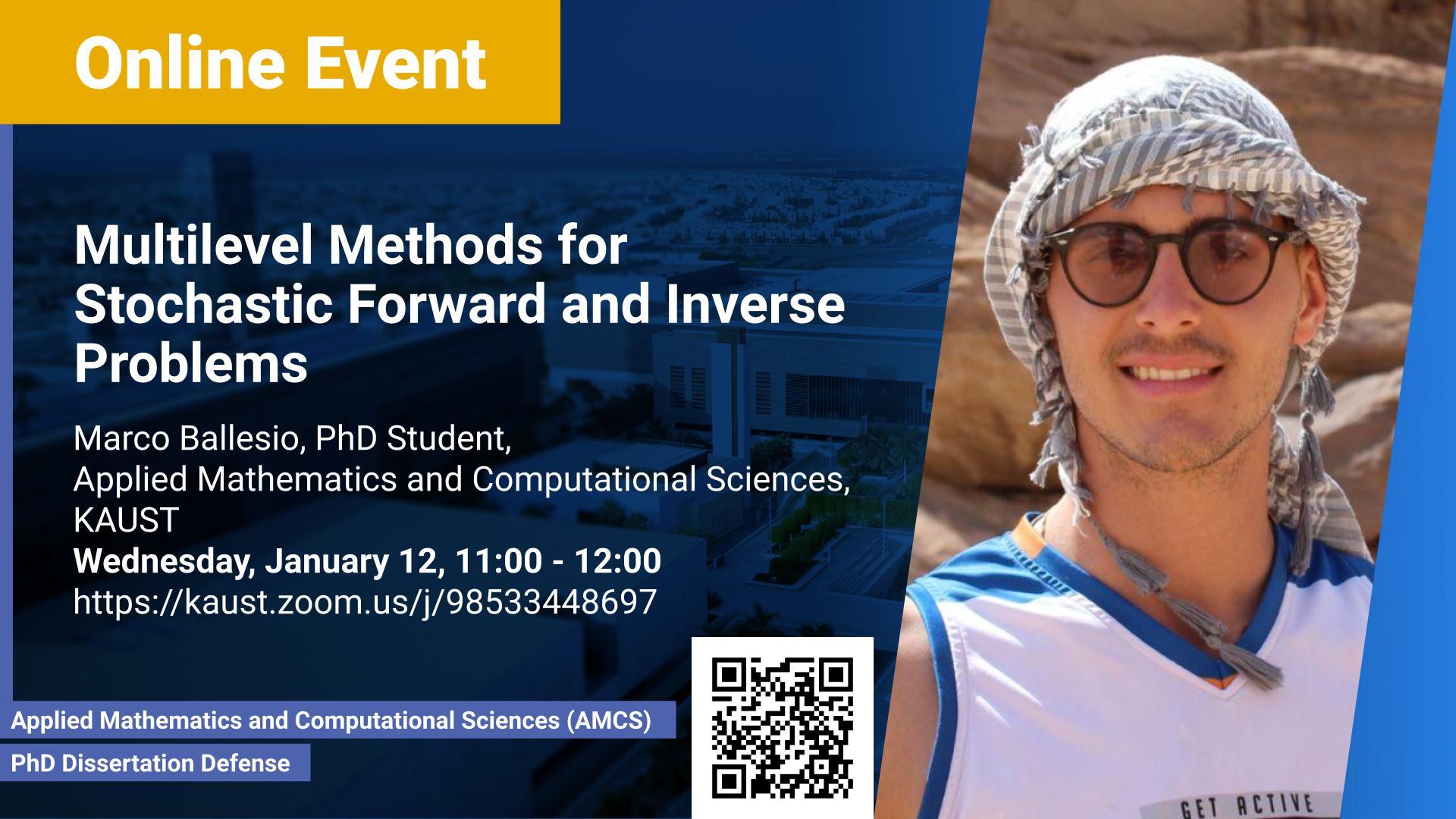Abstract
This thesis studies novel and efficient computational sampling methods for applications in three types of stochastic inversion problems: seismic waveform inversion, filtering problems, and static parameter estimation.
A primary goal of a large class of seismic inverse problems is to detect parameters that characterize an earthquake. We are interested to solve this task by analyzing the full displacement time series at a given set of seismographs, but approaching the full waveform inversion with the standard Monte Carlo (MC) method is prohibitively expensive. So we study tools that can make this computation feasible. We consider a two-dimensional physical domain with uncertainties on a set of Earth parameters. As part of the inversion problem, we must evaluate the misfit between recorded and synthetic seismograms efficiently. We employ as misfit function the Wasserstein metric originally suggested to measure the distance between probability distributions, which is becoming increasingly popular in seismic inversion. This metric is convex with respect to many possible parameters appearing in seismology, making optimization techniques converge rapidly to the global minimum. To compute the expected values of the misfits, we use a sampling algorithm called Multi-Level Monte Carlo (MLMC). MLMC performs most of the sampling at a coarse space-time resolution, with only a few corrections at finer scales, without compromising the overall accuracy, thus reducing the total complexity compared to MC methods. The extension of the method to a three-dimensional domain, conceptually, further reduces computational cost compared to standard Monte Carlo methods.
We further investigate the Wasserstein metric and MLMC method in the context of filtering problems for partially observed diffusions with observations at periodic time intervals. Particle filters can be enhanced by considering hierarchies of discretizations to reduce the computational effort to achieve a given tolerance. This methodology is called Multi-Level Particle Filter (MLPF). However, particle filters, and consequently MLPFs, suffer from particle ensemble collapse, which requires the implementation of a resampling step. We suggest for one-dimensional processes a resampling procedure based on optimal Wasserstein coupling. We show that it is beneficial in terms of computational costs compared to standard resampling procedures.
Finally, we consider static parameter estimation for a class of continuous-time state-space models. Unbiasedness of the gradient of the log-likelihood is an important property for gradient ascent (descent) methods to ensure their convergence. We propose a novel unbiased estimator of the gradient of the log-likelihood based on a double-randomization scheme. We use this estimator in the stochastic gradient ascent method to recover unknown parameters of the dynamics.
Brief Biography
Marco Ballesio is an industrial modeller and analyst of the energy market for Global Energy and Commodity Management ENEL Department and PhD candidate in the Stochastic Numerics Research Group in KAUST. He obtained his Bachelor and Master in Mathematical Engineering from Politecnico di Torino.

